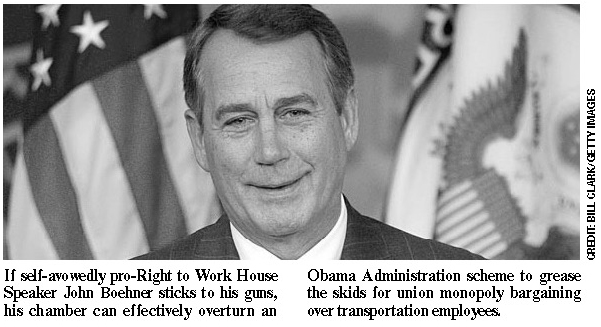Wounded Ohio Contractor: 'I'm in Disbelief'
Shooting Victim's Workers, Firm Have Long Been Big Labor Targets
(Source: September 2011 NRTWC Newsletter)
Having grown over the course of several decades into one of the largest union-free electrical contracting businesses in the Toledo, Ohio, area, King Electrical Services and its employees are seasoned in dealing with Big Labor harassment, threats and violence.
John King started the firm during the 1970's, after first working for a unionized electrical contractor and serving a stint in the military. In his business's early days, Mr. King recalls, "it was nothing to have to regularly buy a new set of tires. The ice pick was the weapon of choice."
During a mid-eighties strike, King Electrical, which then had just eight or nine employees, was picketed by more than 50 International Brotherhood of Electrical Workers (IBEW/AFL-CIO) union militants. One employee had his car trashed and was also beaten up by IBEW thugs.
The harassment and violence have never stopped. Just during the first half of this year, goons hurled rocks through King Electrical's shop-front windows, and smashed the windows and slashed the tires of the company's trucks in separate incidents.
But somehow none of this prepared Mr. King for what happened to him on the night of August 10, while his wife was away with their grandchildren.
After waking up at his home in Monroe County, Mich., 2.5 miles from Toledo, Mr. King noticed that the motion lights in his driveway had come on. He then looked out his front window and saw a man who appeared to be breaking into his SUV.
'It's Not So Surprising That Union Militants Think They're Above the Law'
As a resident of a neighborhood where violent crime is practically unheard of, Mr. King unhesitatingly walked out his front door to yell at the apparent thief.
So confident was Mr. King that his home was his "safe haven" from the Big Labor thuggery he and his employees have often faced on the job, in fact, that, prone and bloodied in front of his house a few seconds later, he didn't realize he'd been shot.



